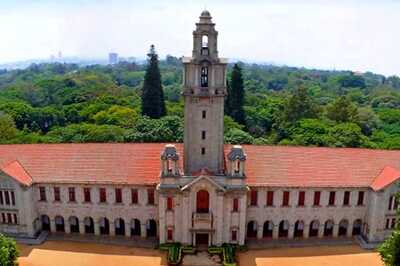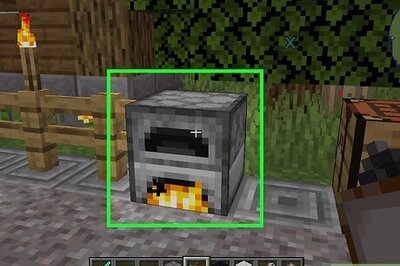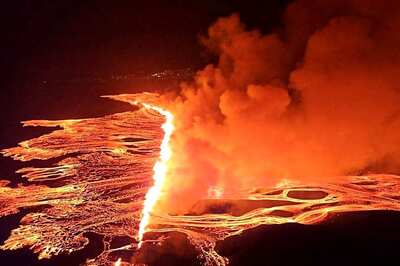
views
Julio Ribeiro, the 1953-batch IPS Officer, is arguably one of the most famous police officers in the country. In his long and distinguished career, he has served as the Mumbai City Police Commissioner, Director General of Police in two states – Punjab and Gujarat – and DG of CISF. Ribeiro, but made it to history books as the man who finished off the Punjab insurgency. The “bullets for bullets” policy of Punjab Police cleaned the state off militancy but brought its fair share of controversies on extra-judicial killings. News18’s Smitha Nair spoke to the super cop on the latest “encounter killing” in Bhopal where police shot dead 8 SIMI operatives last week after they jumped prison. Excerpts:
Q: During your term as Mumbai City Police Commissioner, there have been allegations that you had resorted to encounter to finish off crime syndicates. Looking back, do you think encounter killings (fake or real) can be justified by any yardstick, legal or moral?
They were certainly not mandated encounter killings. Manya Surve (editor’s note: the gangster was shot dead by cops in 1982 in what later came to be known as the first encounter killing in Mumbai) was killed before I took charge as police commissioner. People say that encounter killings started during my time, so I went back and looked at the records. There were 7, 8 such killings, but they were all by different policemen from different police stations. There were no encounter specialists because that would mean somebody sent to do such things. It is not true, so probably these were some over-enthusiastic cops. We investigated if these were genuine or not and they showed us evidence to prove it was genuine. And most of those killed were very very bad, there was no question, there was no person on the fringes as such…
Q: Even so there is the question of due process…
There was an investigation by a magistrate then and they had shown evidence to prove they were genuine encounters. But I wouldn’t swear that they weren’t extra-judicial killings, which I must tell you...
Q: You are not certain they were genuine?
No, I am not certain.
Q: Two weeks ago, Andhra Pradesh claimed it had shot down a dozen Maoists including women in an encounter. Last week, MP police said it killed 8 SIMI operatives who had escaped from jail. How do you look at these two incidents?
Look, I am not sure whether this (the Bhopal incident) was extrajudicial, whether they were caught and then killed. But I can only say that this has become a habit because there is a lot of public backing to this kind of action by the police. And that backing comes because people find that the judicial process system does not work in this country. If suspects are immediately arrested, arraigned and charged and the trial takes place quickly, they are convicted and sentenced, this kind of thing would never have happened. But, now there is pressure from the public, particularly the middle class who feel afraid of someone like those that want to become rich through crime. There is a lot of pressure from the political establishment also because they are in power. They want to remain in power that is their job; they feel frightened that they may lose support. And this is their constituency. So what happens is that there is a lot of public support for this kind of extra-judicial killings, for short cuts where the police, instead of arresting them and bringing evidence to show that they are the ones involved in an offence, just eliminate them. They become the investigator, prosecutor, the judge and finally the executioner also.
This is dangerous. Why is it dangerous? Because the policemen who are supposed to uphold the law themselves become criminals in uniform and that is the biggest danger of these kinds of extra-judicial killings. People must understand that. At the moment, the police are in a quandary because they have to produce results and producing results in the present scenario is difficult because to get hold of the criminals, to get hold of the proper evidence with the manpower at your disposal and then to get the case tried quickly is almost impossible. The number of adjournments given is totally out of proportion. So I believe that unless we get the judicial process system back on the rail we are not going to find any solution to this. Amnesty international had released a report saying there is public backing even for custodial violence which is so common over here. The problem is there is so much support for it. You ask ordinary people.
Today if there is an election, because of these killings (Bhopal) the party in power will win. You are not going to lose any votes because of this, let me tell you that.
Q: So due process becomes the casualty?
Absolutely, the other casualty is the policemen themselves, they become so powerful. The encounter specialists here, for instance, they become rich and powerful and they can influence people, they become matinee idols. This whole thing is really a dangerous thing where you have criminals in uniform.
Q: The joint team of the Madhya Pradesh Police, ATS, STF – all armed with sophisticated weapons – used force to kill eight "terrorists" armed with a single sharp-edged weapon. Even if the encounter was genuine, isn’t there a violation of the Doctrine of Proportionality?
It looks totally out of proportion. It’s not a happy thing to have happened but people have escaped from jail, they have escaped earlier and the police are under pressure that whatever wrong they themselves are guilty of by allowing them to escape is corrected. On top of that the police are under pressure because these people are likely to indulge once again in the same kind of crime, so they take the shortcut. But if you ask me, it was done in the most ham-handed manner.
Q: The Indian law, starting from IPC to CrPC, gives a lot of scope for a public servant to justify encounter killings. Will that help while this is being investigated?
You see in such cases what the evidence is. The evidence is of the police and the other person is dead, one side is already dead. Presently though there are video clippings etc. that come in way of what the police are stating and they have to be very careful. In the MP case too, there appear to be some recordings which make their position dicey. But you can’t just blame the police; I have seen in Punjab wherein Operation Black Thunder, some very dangerous criminals were caught red-handed in the Golden Temple. KTS Tulsi, who had taken up our case, told us this was an open and shut case. I was shocked later when as ambassador in Romania I was following the case; they were all acquitted because the judges were also so afraid of convicting these people. Because even their children are not safe. So this is also another aspect that has to be kept in mind. How we deal with this situation has to be discussed not just by the political and police leadership but also by the judiciary sitting at the same table. These extra-judicial killings are giving us a bad name as uncivilised people, who don’t bother about the rule of law and human rights.
Q: Is there any justification really for encounter killings?
Legally there is no justification. Morally and ethically you can say that one side does these killings without any consideration at all. They have no morals. But the other side (policemen) even if they don’t have morals, they have to follow the rule of law because they are liable to be taken to task.
I remember in Punjab I was told by my men that you tell those who are complaining (of human rights violations) that they can keep them (criminals/militants/terrorists) in their homes. There were these issues that really troubled the mind. The Americans did it by taking them to Guantanamo Bay and keeping them there. But one thing is certain they cannot be allowed to go back, kill innocent people. There are different aspects of this; it isn’t just a simple issue. My view is that if police too are encouraged to kill, they will become criminals and that is very dangerous.
Q: Some ‘encounter specialists’ have said they were used and thrown by the seniors and by the political executive and were made to fend for themselves. How fair is that charge?
That may be true, but they went in willingly. They also revelled in their fame or infamy. And they did well financially as far as I can see. In a way, the political leadership and the police leadership that encouraged them would certainly use them and then later when faced with a quandary say, “No, we have nothing to do with them.” Because nobody wants to be charged.
Q: In your understanding, does the leadership of the police force make its own decisions with regard to encounter killings or is there necessarily political sanction in all cases? Or is it almost always at the behest of the state (political executive)?
I would say the political executive and the police are in the same boat so far as this is concerned because the pressure is from the people. Now, you take Punjab as a case in point. There was a lot of pressure, spoken and unspoken, told and untold to finish off these people. Very often, when they are sent to jail, jail breaks happen, jailbreaks are real. I have seen them. Look, what I am saying is this is not a simple issue. But I am happy there are human rights activists. If they weren’t there, for instance in Punjab, people would’ve gone totally haywire. So at least they keep the state actors under control, that’s a good thing.
Q: Do you think that NHRC intervention will yield a result different than what the MP police claims especially taking into account the mixed history of ‘extra-judicial’ killings in the country?
A: Like I said above, they are important. If they were not there, perhaps things would have been worse, but again in the case of Sohrabuddin Sheikh Encounter killing, I don’t think anything will happen. In Bhopal the balance of advantage (of the killings) goes to the party in power, most people will welcome it; I have no doubt about it. But it’s necessary to have those like the media, the human rights activists, even the judiciary. Otherwise, there will just be no check.




















Comments
0 comment